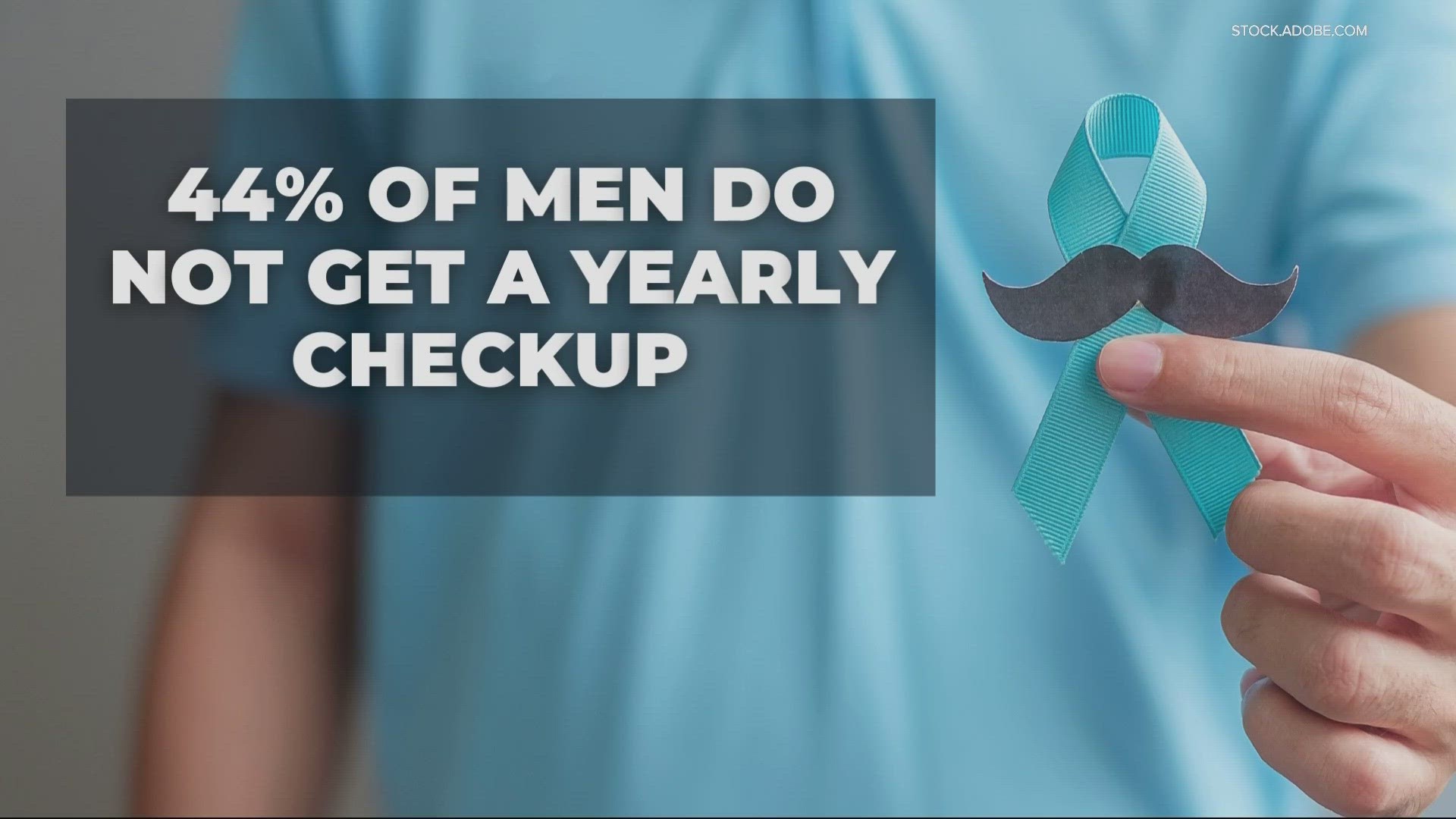PORTLAND, Ore. — It is that time of year again when faces get fuzzier in support of men’s health.
We’re right in the middle of Movember, also known as "No Shave November," where men grow out their facial hair to raise awareness and start conversations about men’s health.
“Movember talks about cancers that are specific to men — prostate cancer and testicular cancer — but a really important pillar is mental health,” said executive medical director for Regence Blue Cross Blue Shield of Oregon Dr. Tracy Muday.
Having a month to focus on men’s health is important because research shows men are less likely to go to the doctor than women. A new national survey by Cleveland Clinic found almost half of men (44%) do not get a yearly physical, and 44% do not take care of their mental health.
Another survey, also by Cleveland Clinic, found that of more than 1,000 men 18 and older, 72% of men would rather do household chores than go to the doctor. Even for men who take their health more seriously, some hold back: 20% admit they have not been completely honest with their doctor.
“It’s really important to understand that help is out there and it’s available,” Dr. Muday said.
Muday points to social connection as a big factor in mental well-being.
“Having family, friends or even close work colleagues — those relationships are protective against suicide and against depression,” she said.
Right now, men are facing a discouraging trend when it comes to health and longevity. An article published this week by JAMA (Journal of the American Medical Association) shows the life expectancy gap between women and men is widening. The research shows women outlive men by 5.8 years. It is the largest gap since 1996 and an increase from a low of 4.8 in 2010.
The pandemic was the biggest factor, followed by unintentional injuries and poisonings (mostly drug overdoses), accidents and suicides.
“All of those things are things we can make an impact on and we can change, but it will take time and attention and lots of things working together to turn that course around,” Dr. Muday said.
It’s all about overall health, both mental and physical. Dr. Muday says taking charge of that starts with getting a primary care physician.
“Number one: have a personal doctor,” she said. “That relationship that you have with your doctor will be there for you when bad things happen and when you have a question. It’ll be a lot easier to get those questions answered, get those problems checked out.”
A healthy lifestyle not only makes for better physical health but mental health as well — so, get your body moving 30 minutes a day, five days a week. Also, make sure you’re eating a nutritious diet, and reduce your alcohol intake.
“More than two drinks a day five days a week puts men at risk for alcohol-related health conditions and just decreasing by a little bit can reduce that risk,” Dr. Muday said.
Of course, you don’t need facial hair to talk about men’s health. Reach out to the men in your life and start the conversation.
If you’re struggling with your mental health, help is available 24/7 by calling or texting the National Crisis Lifeline at 988.
For more information on Movember, visit us.movember.com.

